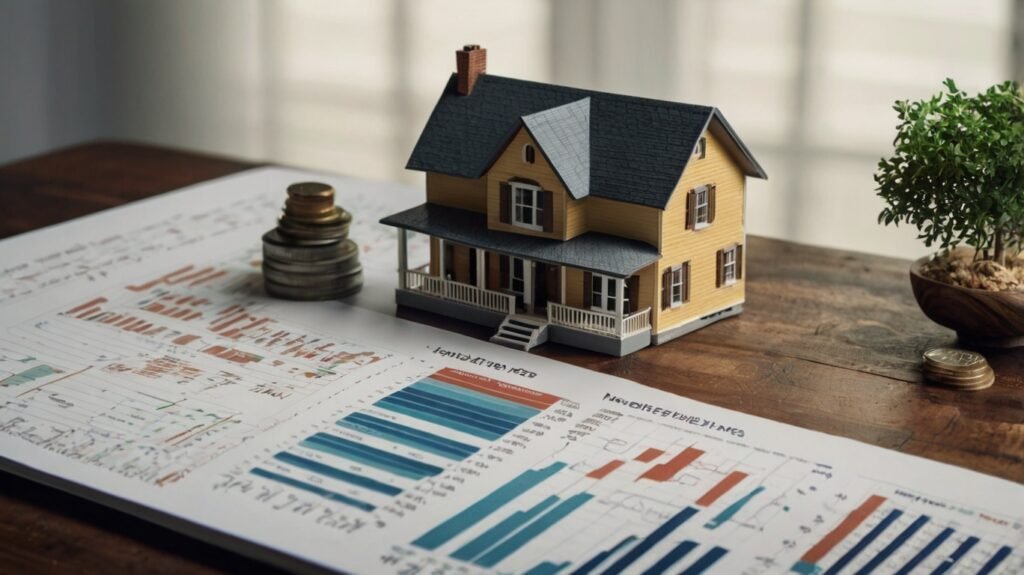The real estate market is like a sponge, soaking up the nuances of the economy. When economic conditions change, whether it’s due to a boom or a downturn, the real estate sector feels the ripple effects. Understanding this interplay is crucial for investors, homeowners, and policymakers alike. Let’s dive into how economic shifts impact the real estate market and what it means for the future.
Economic Indicators and Real Estate
Economic indicators such as GDP growth, inflation rates, and unemployment levels are crucial in assessing the health of the real estate market.
GDP Growth and its Effect on Real Estate
When a country’s GDP grows, it often signifies a robust economy with higher consumer spending and investment. This economic vitality usually leads to increased demand for real estate as businesses expand and more individuals seek to purchase homes. On the flip side, sluggish GDP growth can result in reduced demand and slower property price appreciation.
Inflation Rates and Property Prices
Inflation erodes purchasing power, and its impact on real estate is twofold. On one hand, higher inflation can drive up property prices as costs of materials and labor increase. On the other hand, inflation can also lead to higher interest rates, which may dampen housing affordability and reduce buyer activity.

Unemployment Rates and Housing Demand
High unemployment rates typically result in decreased household income, reducing the demand for housing and leading to lower property prices. Conversely, low unemployment rates usually indicate a healthy job market, which supports higher demand for homes and potentially higher prices.
Interest Rates and Mortgage Markets
Interest rates play a pivotal role in shaping the real estate market. The decisions made by central banks influence mortgage rates, which in turn affect buyers’ ability to afford homes.
How Central Bank Policies Affect Mortgage Rates
Central banks, through monetary policy, adjust interest rates to control economic activity. When rates are low, borrowing costs decrease, making mortgages more affordable and boosting housing demand. High rates, however, can lead to more expensive loans and a slowdown in the market.
The Impact of Interest Rates on Property Affordability
Lower interest rates generally mean lower monthly mortgage payments, which can make homeownership more accessible and encourage buying. Conversely, higher rates can make mortgages less affordable, cooling down the housing market and potentially leading to price corrections.
Variable vs. Fixed-Rate Mortgages
Variable-rate mortgages can be advantageous in a low-interest environment, offering initially lower rates. However, as rates rise, monthly payments can increase, impacting buyers’ budgets. Fixed-rate mortgages provide stability with consistent payments, which can be beneficial when rates are expected to rise.

Housing Supply and Demand
The balance between housing supply and demand is crucial in determining property prices and market trends.
Economic Booms and Housing Supply
During economic booms, increased construction activity often leads to a higher supply of new homes. This can help balance out demand and prevent sharp price increases. However, rapid growth in housing supply without corresponding demand can lead to oversupply issues.
Recessions and the Impact on Housing Demand
In recessions, decreased consumer confidence and lower disposable income lead to reduced housing demand. Builders may delay new projects, contributing to a lower supply of new homes. This can result in stagnant or declining property prices.
Urban vs. Rural Property Trends
Economic changes affect urban and rural areas differently. Urban areas often experience more pronounced effects due to higher population densities and more significant economic activity, while rural areas may face slower adjustments in housing demand and prices.
Investment Strategies During Economic Fluctuations
Investing in real estate during economic fluctuations requires careful planning and strategy.
Safe-Haven Investments in Real Estate
In uncertain economic times, real estate is often seen as a safe-haven investment. Properties in prime locations or those with strong rental demand tend to retain value better and provide stable returns.
Risk Assessment in Economic Downturns
Investors must assess risks carefully during economic downturns. Evaluating market conditions, property values, and rental yields can help identify opportunities and avoid pitfalls.
Diversification and Portfolio Management
Diversifying investments across different property types and regions can mitigate risks associated with economic changes. A well-balanced portfolio can provide stability and opportunities for growth even during economic downturns.
Regional and Local Economic Factors
Local economic conditions can have a significant impact on real estate markets, sometimes even more so than national trends.
How Local Economies Influence Property Markets
Local job growth, infrastructure developments, and regional economic policies play a critical role in shaping property markets. Areas experiencing economic growth may see rising property values, while those facing economic challenges might struggle with stagnant or declining prices.
Case Studies of Economic Impacts on Regional Real Estate
Examining case studies of different regions provides insight into how local economic factors influence real estate. For instance, tech hubs like Silicon Valley have seen significant property value increases due to booming local economies, while areas affected by industrial decline may experience property value drops.
Government Policies and Real Estate Market
Government policies can significantly impact the real estate market, shaping both demand and supply.

Tax Incentives and Property Market Stimuli
Tax incentives for homebuyers, such as deductions on mortgage interest or property taxes, can stimulate demand. Similarly, incentives for developers can encourage new construction and increase housing supply.
Zoning Laws and Economic Development
Zoning laws affect land use and property development. Changes in zoning regulations can open up new areas for development or restrict growth, influencing property values and market dynamics.
Technological Advancements and Market Responses
Technology is increasingly influencing the real estate market, from property management to investment strategies.
PropTech Innovations and Economic Shifts
PropTech, or property technology, includes innovations such as virtual tours, blockchain for transactions, and AI-driven property valuation tools. These technologies can enhance market efficiency and adapt to economic changes.
How Technology Is Shaping Real Estate Investment
Technology is transforming real estate investment, making it more accessible and efficient. Online platforms and data analytics allow investors to make informed decisions and respond quickly to market changes.
Future Trends and Predictions
Looking ahead, several trends and predictions can offer insights into how the real estate market may evolve in response to economic changes.
Economic Forecasts and Their Impact on Real Estate
Economic forecasts provide valuable information on potential market trends. Analysts use economic data to predict future real estate market conditions, helping investors and homeowners make informed decisions.
Emerging Market Trends and Opportunities
Emerging trends such as sustainable development, remote work, and changing demographics are shaping the future of real estate. Understanding these trends can help stakeholders identify opportunities and navigate future market changes.
Conclusion
Economic changes have a profound and multifaceted impact on the real estate market. From interest rates and inflation to local economic conditions and technological advancements, the interplay between the economy and real estate is complex. By staying informed and adapting to economic shifts, investors, homeowners, and policymakers can better navigate the evolving market landscape.
Related Articles
- How to Analyze Real Estate Listings Like a Pro
- Understanding Real Estate Appraisals
- Real Estate vs. Stocks: Which Investment is Better?
FAQs
How do economic downturns specifically affect property values?
Economic downturns typically lead to decreased property values due to reduced demand and lower consumer confidence. During recessions, fewer buyers are willing or able to purchase homes, leading to price corrections.
What role do government policies play in stabilizing the real estate market?
Government policies, such as tax incentives and zoning regulations, can stimulate housing demand and increase supply. These measures can help stabilize the market during economic fluctuations and promote growth.
How can investors prepare for economic fluctuations in real estate?
Investors can prepare by diversifying their portfolios, conducting thorough risk assessments, and staying informed about market trends. Developing a strategy that includes safe-haven investments and adjusting to economic conditions can mitigate risks.
What are the signs of a real estate market recovering from a recession?
Signs of recovery include increasing property values, rising demand, and growing construction activity. Positive economic indicators, such as job growth and consumer confidence, also signal a market rebound.
How does inflation impact rental markets?
Inflation can increase rental prices as landlords adjust rents to keep pace with rising costs. Higher inflation often leads to higher living expenses, which can push rental rates up and affect affordability for tenants.
